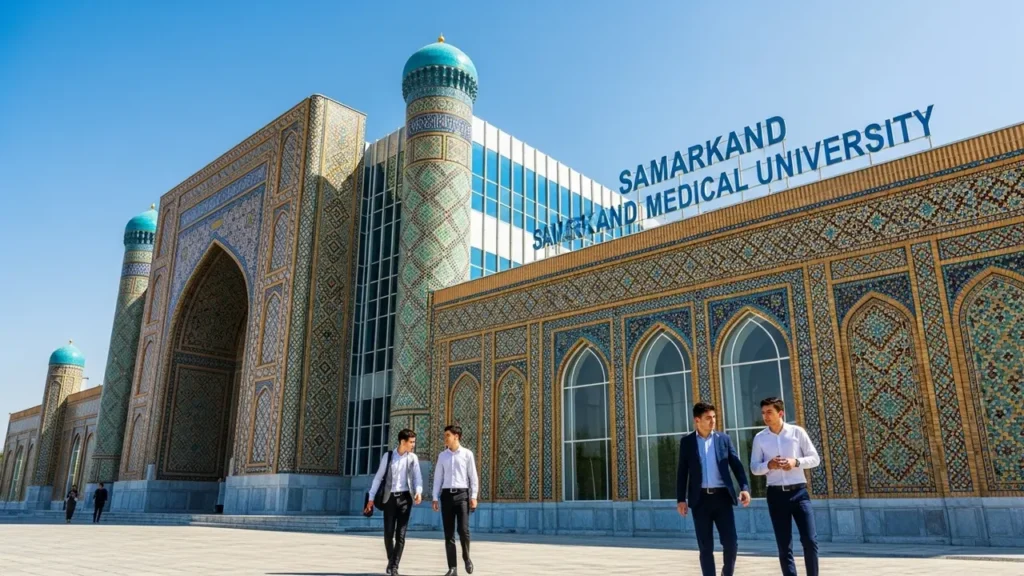Thinking About Studying Abroad at Tula State University?
Let’s be real. If you’ve ever tried to figure out how to study in another country, you know it can feel like a wild goose chase. Endless forms. Confusing websites. And a million questions.
You hear about a place like Tula State University in Russia—sounds cool, right? But then your brain starts spinning:
- What programs do they *actually* offer?
- How much will it *really* cost?
- What do I need to get in?
It’s enough to make anyone’s head hurt. I’ve been there myself, staring at deadlines and wondering if I’m about to miss out on something amazing just because I can’t find a straight answer.
Don’t Let Confusion Block Your Next Step
Honestly, it can feel like the dream is right in front of you, but just out of reach. There’s always a nagging worry:
- What if I miss a scholarship because I’m confused about the forms?
- What if I don’t know the language well enough?
- What if my degree isn’t accepted back home?
It’s like standing at the bottom of a giant staircase, hoping you’ve got the right shoes, but not even sure where the first step is.
And the pressure? It’s real. Application windows are short. Mess up one thing—maybe you forget to translate a certificate—and suddenly you’re waiting another year.
Tula State University: Let’s Break It Down
Here’s the good news: Tula State University (TSU) is actually pretty straightforward if you know what to expect. No more guessing games.
TSU isn’t just some tiny school. It’s one of the biggest in Central Russia, running since 1930. They’ve got a lot of options—think engineering, natural sciences, economics, law, and even medicine (that’s a big one for international students).
And if you’re looking at medicine, their MBBS program is a huge draw. The teaching staff is experienced, and students get hands-on experience in real hospitals. Plus, compared to the US or UK, the tuition is way more affordable.
So, what do you need to get in?
- High school diploma: Or whatever is equal, with grades in the right subjects.
- Transcripts: They’ll want to see your marks, especially in the subjects that matter for your chosen course.
- Medical certificate: Just to show you’re healthy enough for student life.
- Passport: With enough time left before it expires.
- Proof of Russian: Most courses are in Russian, so you’ll need to show you can keep up. Not fluent yet? TSU has a prep course just for that.
Here’s a tip: If your Russian isn’t up to scratch, don’t panic. The university offers a preparatory faculty—basically, an intensive language and subject boot camp for international students. You’ll learn Russian and pick up core subjects for your degree. It’s a great way to get comfortable before the real classes start.
Let’s talk money. Tuition at TSU is way less than in the US, UK, or Australia. Exact costs depend on your program—medicine is pricier than engineering or business. The best way to get the latest numbers? Check the TSU international admissions website. They update fees every year.
But don’t just think about tuition. Tula itself is much cheaper to live in than Moscow or Saint Petersburg. Rent, food, and transport are all pretty affordable. Most students choose to stay in the dorms. Not fancy, but it will save you cash and help you make friends fast.
So, how does the application work?
- Pick your program and check the requirements.
- Send in your application with scanned documents.
- If you get a preliminary “yes,” you’ll need to get your certificates officially translated and legalized (that can take some time—don’t leave it to the last minute!).
- Once you’re in, TSU will send you an official invitation letter. You need this for your Russian student visa.
- Apply for your visa at the Russian embassy—bring your invitation, passport, photos, medical certificate, and HIV test results.
The process isn’t instant, so start early. Legalizing documents and getting a visa can take a while. The international department at TSU is there to help—you can email or call them if you get stuck.
Think of the application as a recipe. Each step matters. Miss one (like forgetting to legalize your transcripts) and you’ll have to start over. Keep a checklist and double-check every requirement.
But it’s not all paperwork and stress. Living in Tula is its own adventure. You can check out the old Tula Kremlin, wander through Leo Tolstoy’s estate, and try the city’s famous gingerbread (seriously, it’s worth it). You’ll meet students from all over the world. And you’ll see a side of Russia beyond the big cities.
Here’s something important if you’re going into medicine: Make sure your degree will be recognized back home. For example, Indian students should check the National Medical Commission’s official website to see what’s required for foreign degrees.
Ready to get started? The best way to get up-to-date info is to visit TSU’s official site for international students (check out the TSU international page here). Bookmark it. Visit it often.
Want real talk about student life? Find student forums and alumni groups (see student forums). You’ll hear what daily life is actually like, what to pack, and which food stalls to avoid. Trust me, the advice from other students is gold.
Bottom line: Studying abroad is a big step, but Tula State University makes the path pretty clear. Take your time, gather your documents, and reach out if you need help. Don’t wait until the last minute. Your Russian adventure could be closer than you think.
FAQ
Q: What do I need to apply?
You’ll need a high school diploma (or whatever counts as that in your country), decent grades, and proof of Russian skills (or finish the TSU prep program).
Q: How much will it all cost?
Tuition is way cheaper than in most Western countries. Living in Tula is affordable too, especially if you stay in the dorms. Always check the official site for the latest numbers.
Q: Will the university help me get a visa and settle in?
Yes! The TSU international office helps with the invitation letter and gives advice on getting your visa and adjusting to life in Russia.






